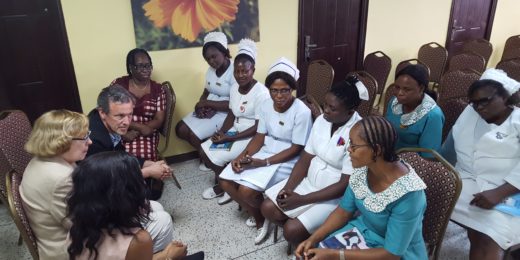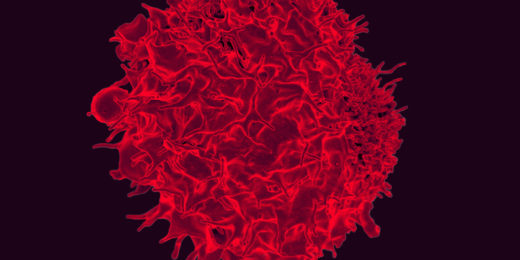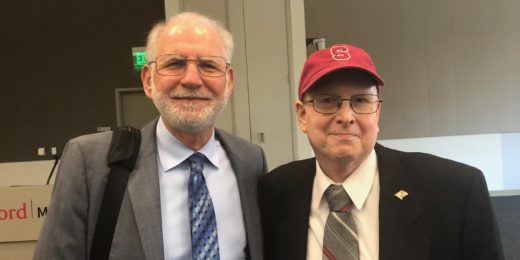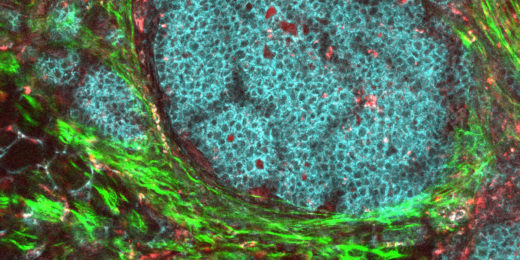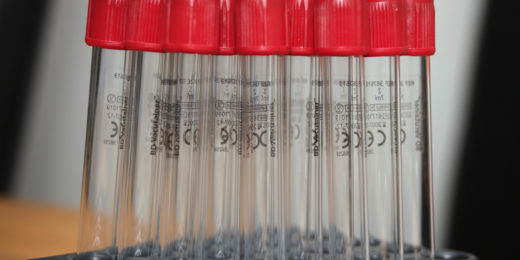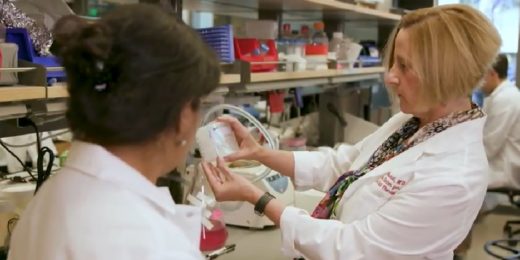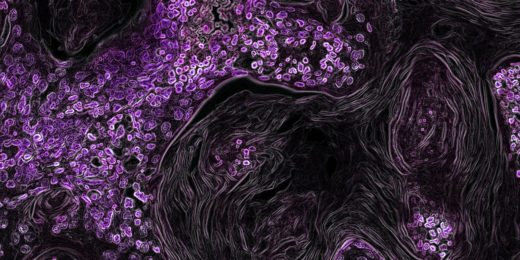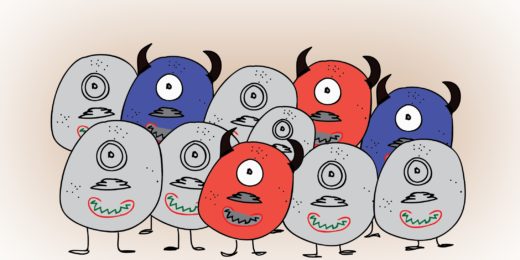Stanford researchers solve a long-standing mystery as to how mutations in a neighboring stretch of DNA can increase the expression of a cancer-associated gene called Myc. The finding highlights a potential new class of targets to block cancer cell growth.
Category: Cancer
Listen to the human stories, the Henrietta Lacks family tells scientists
Author Rebecca Skloot and Henrietta Lacks family members discuss the importance of telling the human stories behind medical science
Improving cancer care in Nigeria
Stanford Medicine doctors have partnered with colleagues in Nigeria to improve cancer care with the goal of reducing inequities.
Engineered immune cells clear deadly pediatric brain tumor in mice
Scientists have made an important step forward in treating a deadly childhood brain tumor, using T cells engineered to target a surface sugar found on the cancer cells.
Bone marrow transplantation at Stanford: 30 years and counting
Robert Negrin outlined the history of Stanford's bone marrow transplantation program and touched on research and other developments in the field over the past 30 years.
A tale of the two-faced macrophage and cancer
When associated with tumors, immune cells known as macrophages can be both good and bad: they can help cancer spread and curb its growth.
New way to understand tumor diversity combines CRISPR with genetic barcodes
Stanford researchers develop a new way to track the growth of diverse tumor types, using gene editing and DNA barcoding.
Telomerase key to liver regeneration, Stanford researchers find
Liver cells expressing high levels of telomerase – a protein normally associated with resistance to aging and implicated in cancers and stem cell maintenance – are necessary to regenerate the organ after normal cell turnover or in response to damage.
Oncologists disagree on use of value to guide cancer treatments
A new study found that oncologists have divergent views on how to use “value” to guide cancer treatment recommendations.
Understanding male breast cancer
Breast cancer in men and women differ in levels of cancer-associated gene expression and the relative risk of recurrence after initially successful treatment. Some men have a higher risk than women, whereas others have a much lower risk.
Helping families assess their hereditary cancer risk
Stanford’s Cancer Genetics Program helps assess families' hereditary cancer risks and guide patients to make informed choices about prevention and treatment.
Why does CAR-T cancer therapy give this Stanford oncologist hope? Watch this video
According to Stanford pediatric oncologist Crystal Mackall, a pediatric oncologist with Stanford Children's Health, immunotherapy with CAR T cells is more precise, more specific and just as potent a treatment for leukemia as chemotherapy.
Developing “guided missiles” to attack cancer
On the Future of Everything radio show, Stanford bioengineer Jennifer Cochran discusses her development of "tumor-targeting missiles" that deliver chemotherapy as "cargo" to more effectively kill cancer.
New imaging agent could help personalize lung cancer treatment
A new radioactive agent developed at Stanford can identify whether a widely used lung cancer drug is likely to be effective.
New method could predict leukemia relapse at diagnosis
A new technique gives doctors an early view of which pediatric leukemia patients will relapse, and may point the way toward better cancer drugs.
Social media gives early clues to adverse drug reactions in cancer, Stanford researchers find
A group of researchers identified adverse and previously unknown drug reactions by sifting through millions of social health forum posts.




